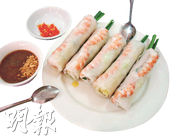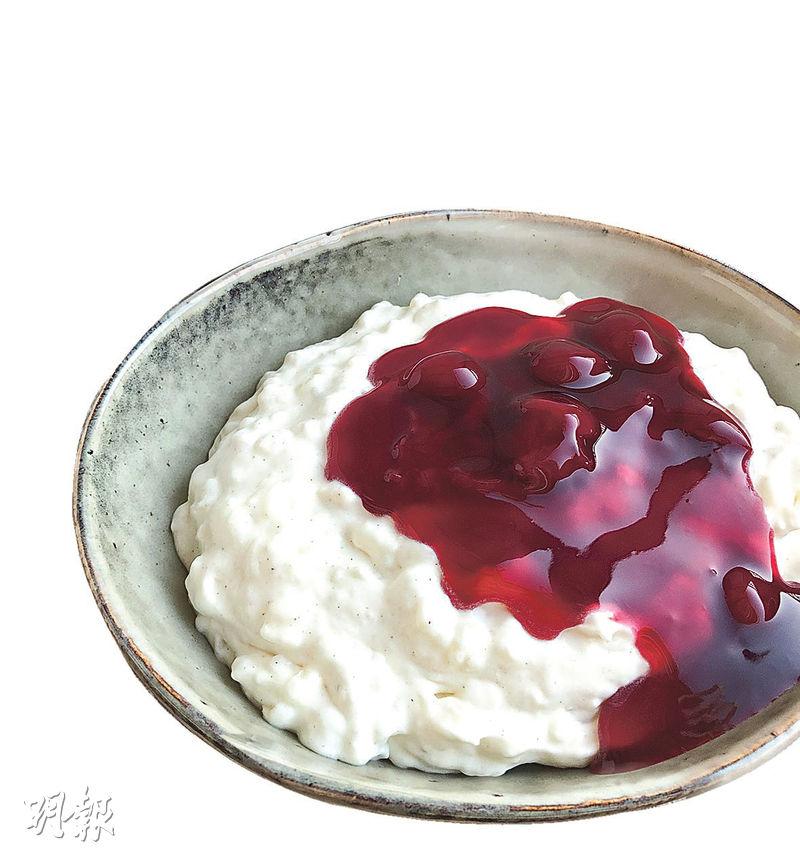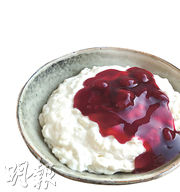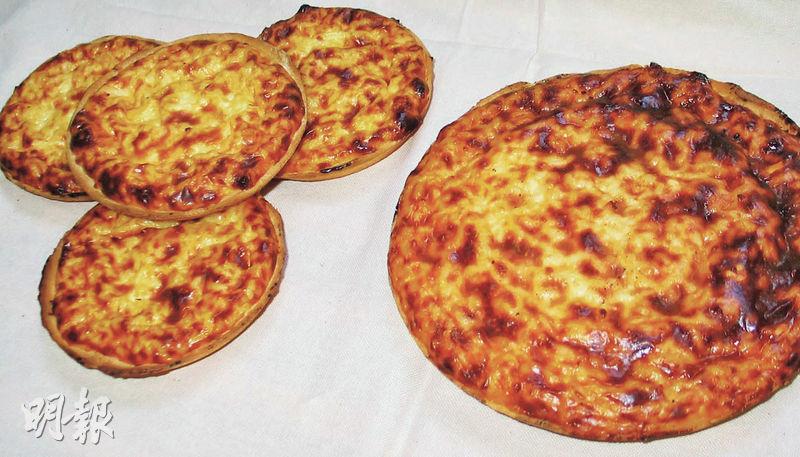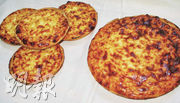Horizon:Rice cuisine
【明報專訊】This may sound a surprise to you - rice is not only a staple food in Asia but a globally consumed ingredient, coming in all forms and all flavours!
◆Spring roll ~Vietnam
It is quite possible that you have tried this refreshing dish from Vietnam, but did you know it contains quite a lot of rice? Although you cannot see actual rice inside the roll, the wrapping is actually made from rice. Some believe that rice paper, which is made with rice, tapioca (木薯澱粉), water and salt, is healthier than wrappings made of flour, because flour-based wrappings usually contain butter and oil. Also, the texture of rice paper allows it to take up less oil than flour wrappings when it is cooked.
Risalamande ~Denmark
While people in most countries make rice a savoury dish, the Danes prefer it sweet! Risalamande is a chilled, rice-based pudding with cream, nuts and warm cherry sauce. Traditionally, the cook hides a whole almond nut in the pudding, and the one who finds the almond in the serving wins a small prize.
Rijsttaart ~Belgium
Talking about having a sweet tooth, how can we leave out the Belgians? Originated in Vervier (韋爾維耶), Belgium, rijsttaart or rijstevlaai is a tart with a creamy rice filling and crunchy crusts. It is so well-loved that you can even buy it in a local bakery or supermarket - not only in Belgium but also in other parts of Europe!
■Gear up
According to the passages on this page, answer the following questions.
(1) Rice paper is made with rice and paper. ( True / False )
(2) Risalamande is a dessert. ( True / False )
(3) You can buy a rijsttaart in a supermarket in Belgium. ( True / False )
(Answers on next text)
■English highway﹕quite
We can use the word ''quite'' to talk about something that is true to a certain point.
e.g. We know each other quite well.
=We know each other fairly well/ well enough.
The word ''quite'' can also mean ''completely''.
e.g. His suggestion is not quite right.
I am quite sure that I have told her about it.
■Glossary
refreshing (adj) 涼爽的
prefer (v) 偏愛
chilled (adj) 冷凍的
leave out (phr v) 遺漏
[Smarties' Power English 第277期]


